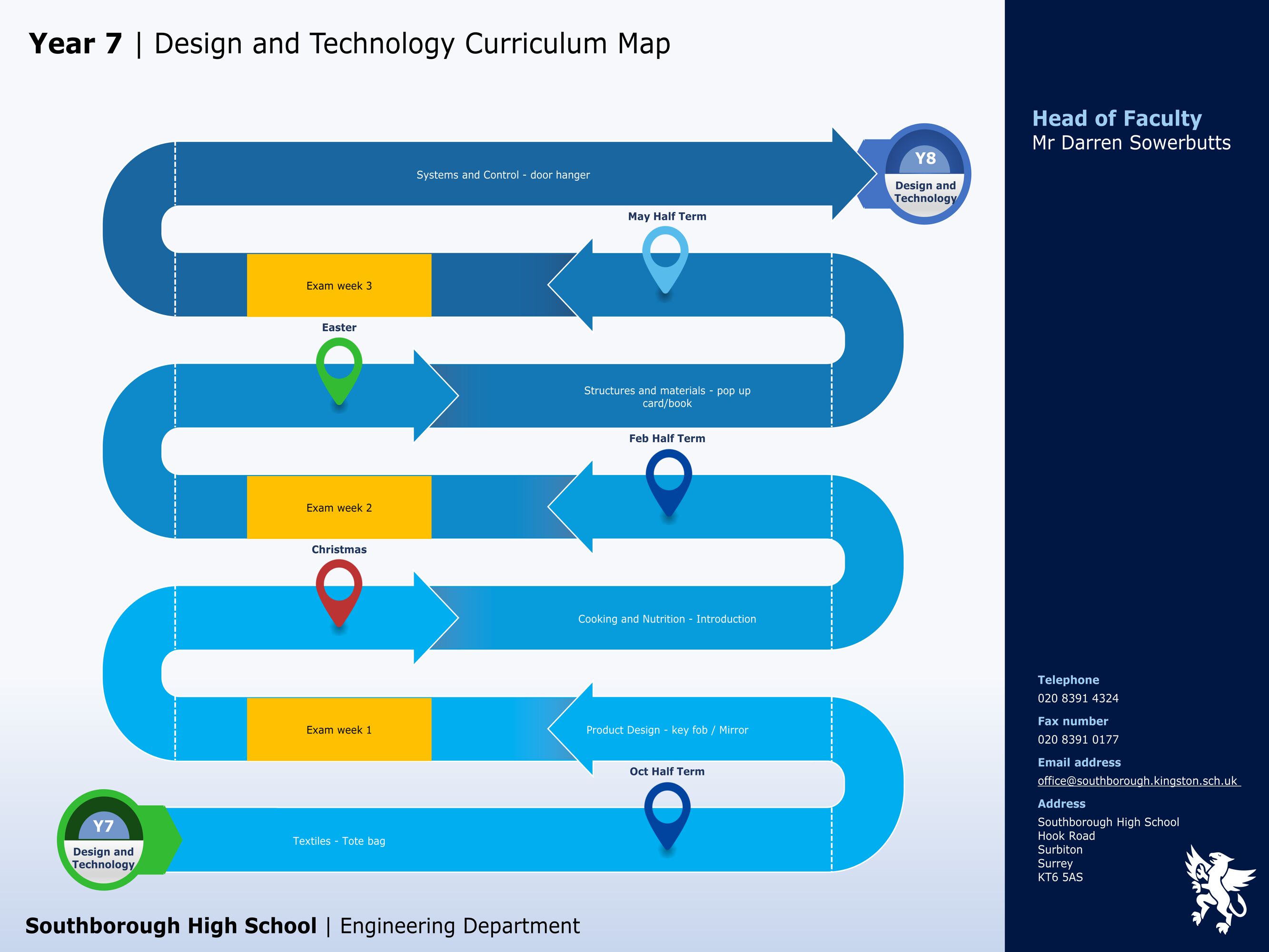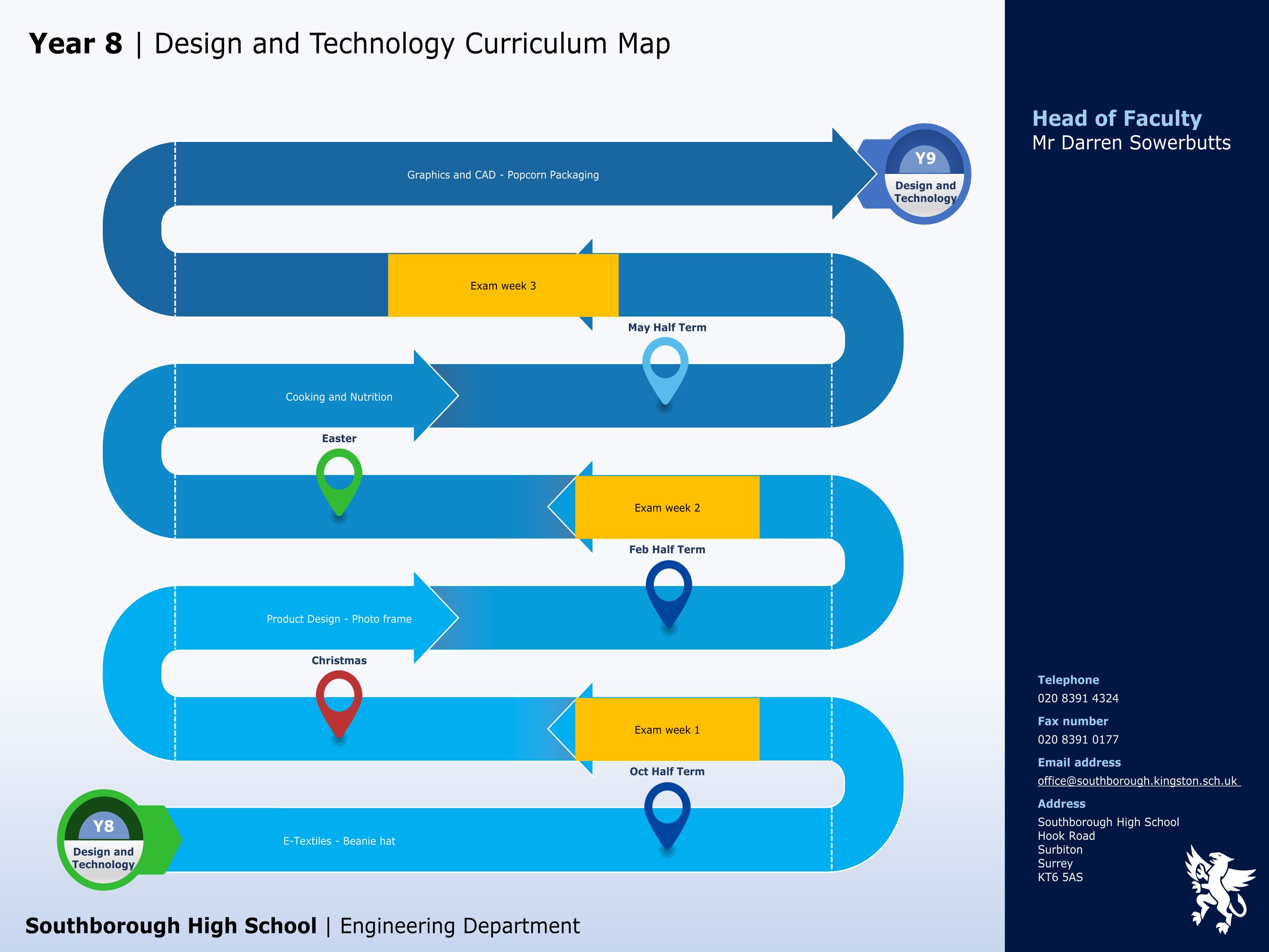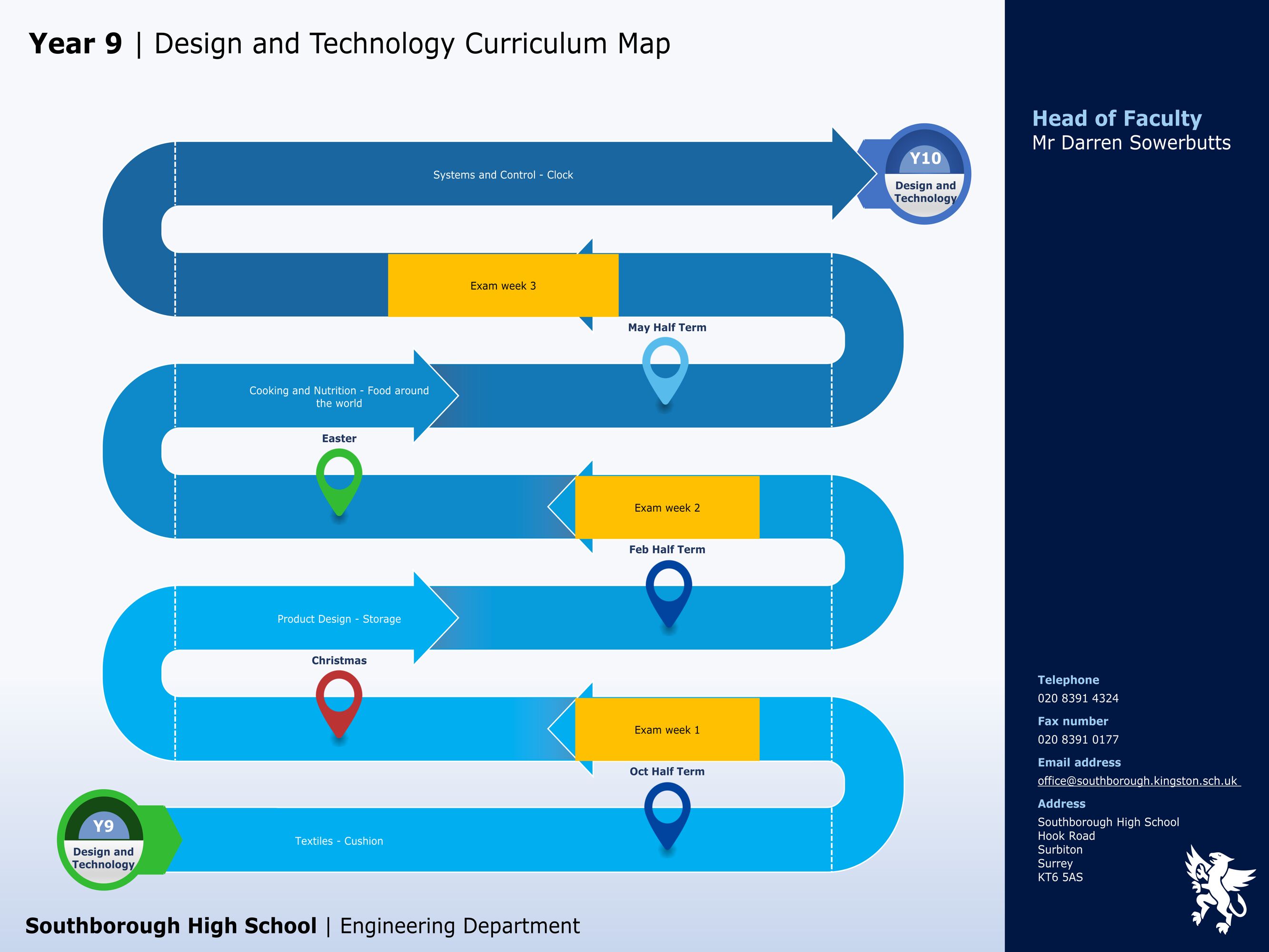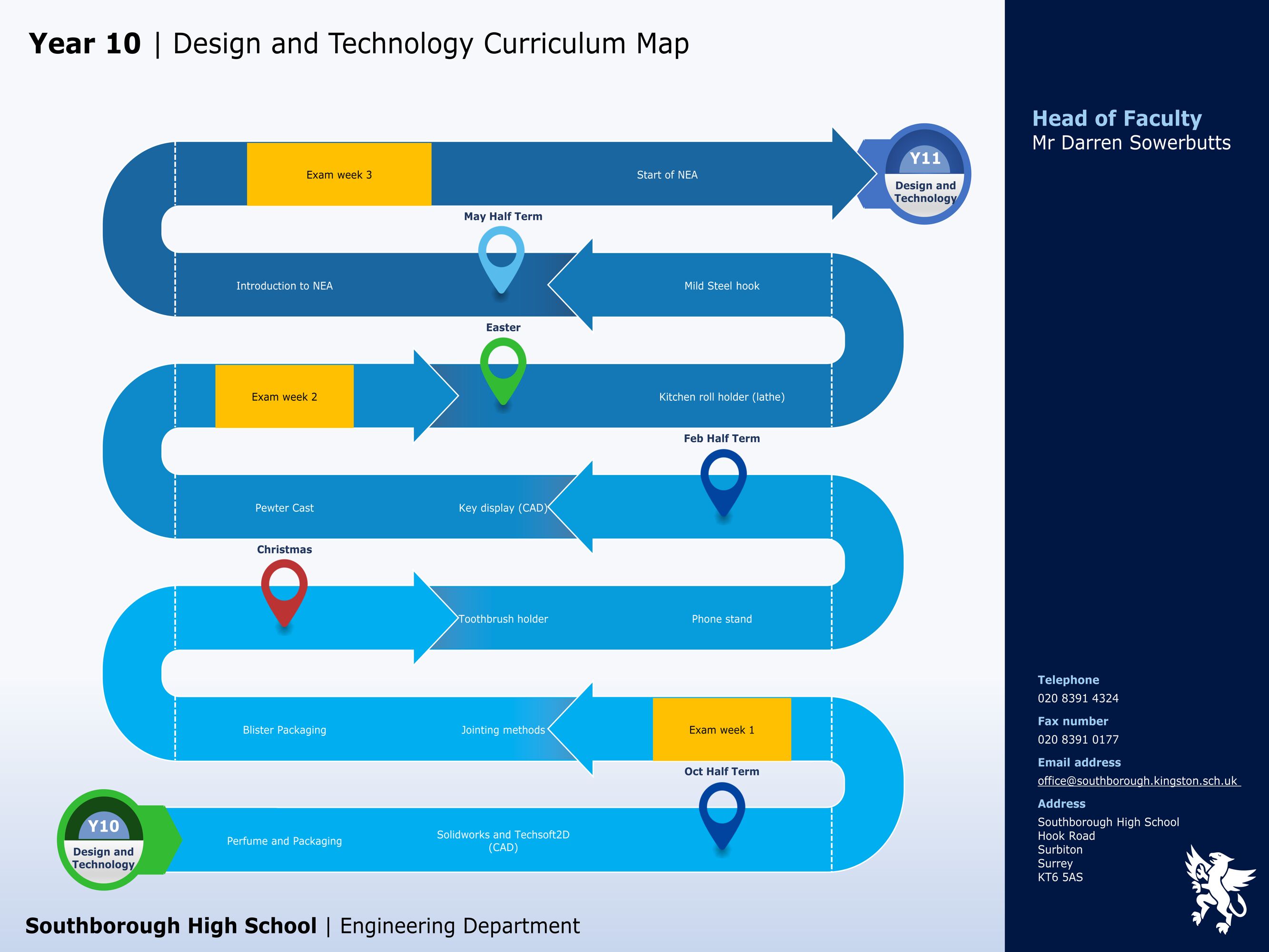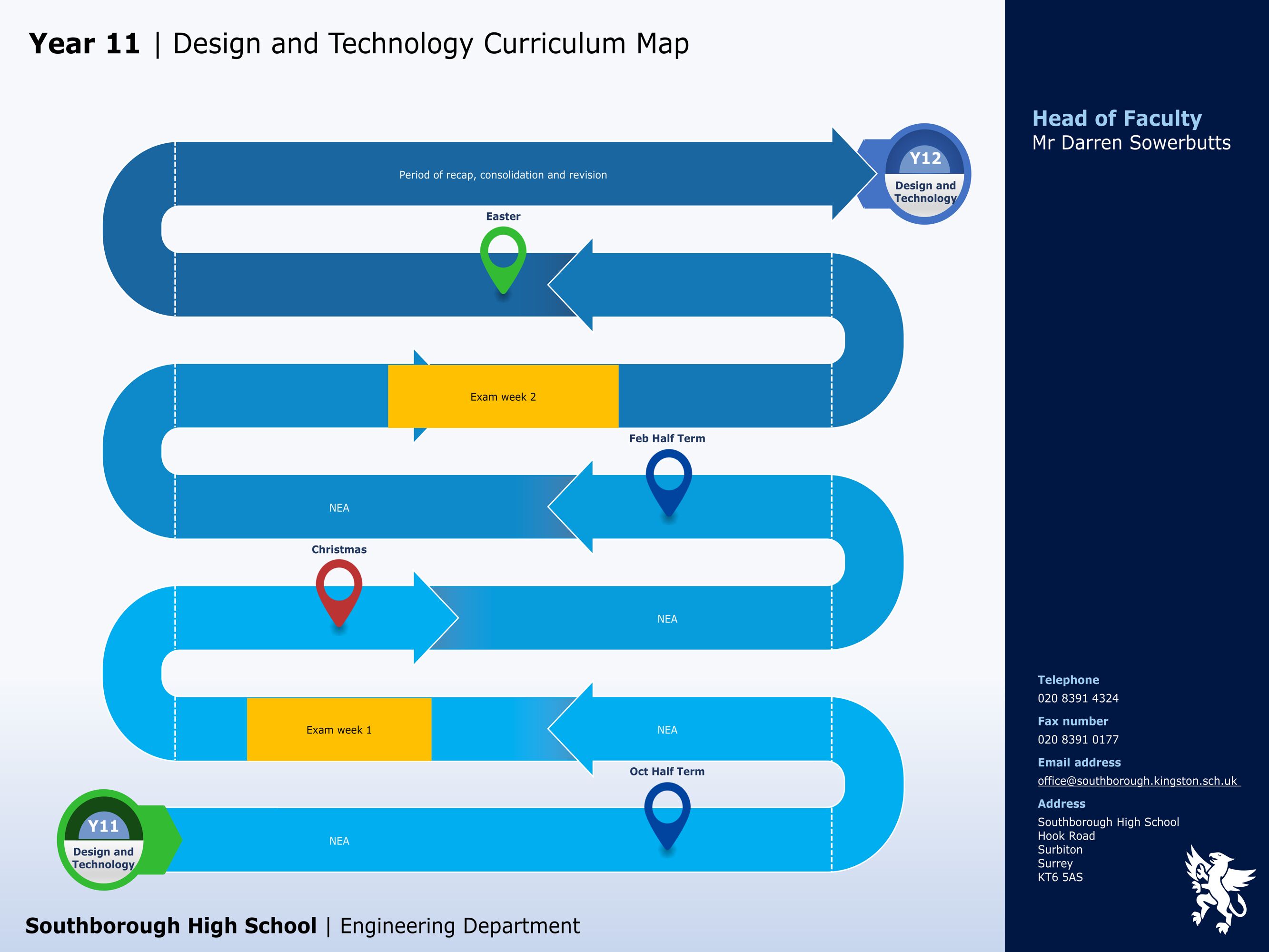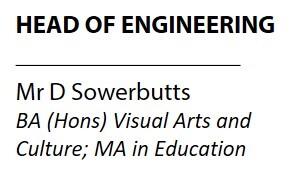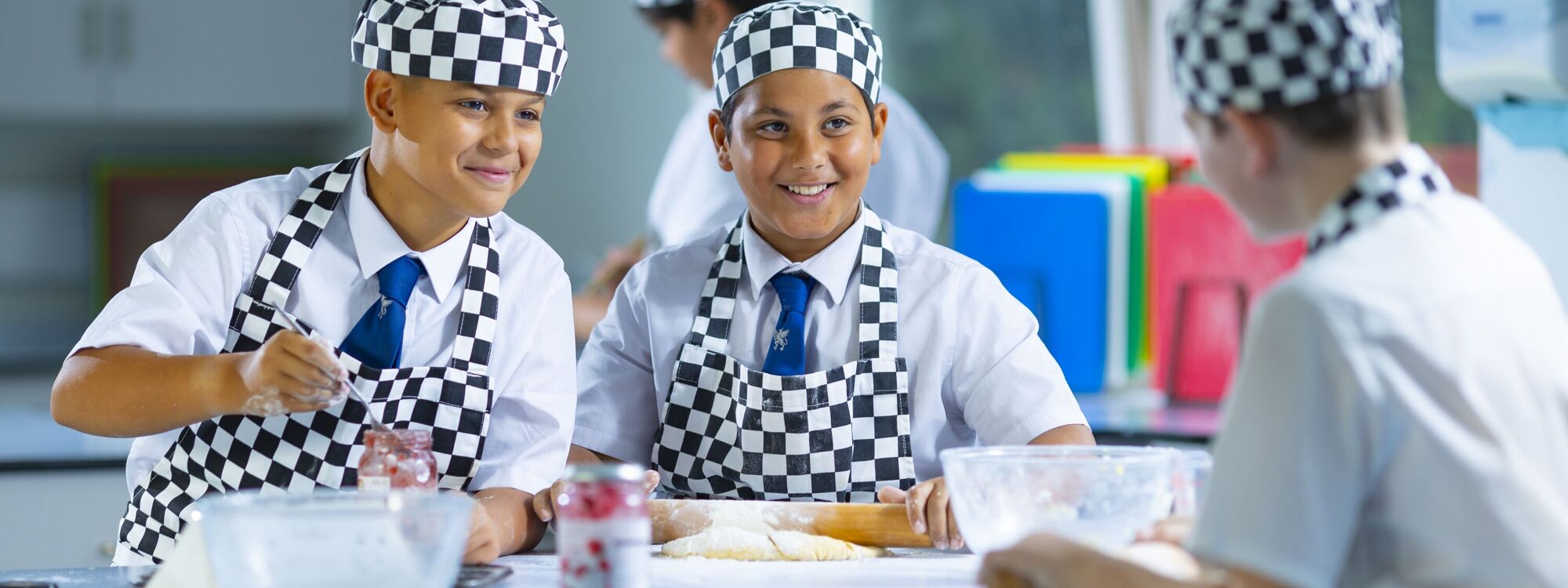
- Home
- Curriculum
- Subject Information
- Design & Technology
Design & Technology
Back
Design and technology is an area of study that focuses on planning, designing and creating things/products which people use.
The Design and Technology facilities provide the perfect and most up-to-date environment to explore the disciplines of 2 and 3 dimensional design.
Students are encouraged to put themselves in the position of a professional industrial designer, taking a broad view of the subject and considering all elements of the iterative design process. Pupils develop their creativity, inquisitiveness and problem-solving skills through a continuous cycle of designing, making, evaluating projects.
Strong practical skills are developed along with the ability to analyse and evaluate, to plan and present ideas and to become confident in solving design problems. From CAD/CAM activities through to the development of skills within a food and nutrition or textiles discipline, the students’ experiences are rich and varied across the whole of Key Stage 3.
Outside the classroom pupils are encouraged to compete in National Design events and visits are arranged to add to the learning experience. In particular, teams regularly take part in competitions that focus on STEM (Science, Technology, Engineering and Mathematics) related themes including Aim Higher events, The Faraday Challenge and Race To The Line. SHS has a strong history of success in several of these, including the Surrey SATRO problem Solving Competition and the Greenpower race events.
Students design and make a variety of products during the lower school years and use advanced equipment throughout. We feel it important that they experience the most modern processes such as Computer Aided Design (CAD) using Solidworks and 2d Design software and Computer Aided Machine (CAM) e.g. 3D printing, CNC router (Computer Numerical Controlled) and laser cutting, as early as possible.
Useful Links
Key Stage 4 Courses
GCSE Design & Technology
Exam Board: AQA
This will be of particular interest to those who want to acquire designing and making skills by studying product design using wood, metals and plastics.
The Design & Technology qualification is modern and relevant, so pupils can learn about contemporary technologies (3-d printer, CNC router and vinyl cutter), materials and processes, as well as established practices (with wood, plastic and metal). The GCSE places greater emphasis on understanding and applying iterative design processes (making a product, again and again, with different materials whilst improving it). Pupils will use their creativity and imagination to design (through drawing skills and 2-d design software) and make prototypes that solve real and relevant problems, considering their own and others’ needs, wants and values.
In Year 10 the work is organised into a variety of modules involving ‘mini’ projects, which will require you to demonstrate your designing and making skills. Surrounding these will be theory lessons to provide you with the necessary knowledge and understanding for this level of study. In Year 11, the majority of your lesson time will be spent working on and developing your major coursework project.
The GCSE is made up of two units:
1. 2 hr written examination (50% weighting)
- Core technical principles
- Specialist technical principles
- Designing and making principles
2. Non-exam assessment – design and make project (50% weighting)
AQA GCSE Design and Technology Specification
GCSE Food and Nutrition
Exam Board: OCR
The GCSE in Food and Nutrition equips students with the knowledge, understanding and skills required to cook and apply the principles of food science, nutrition and healthy eating. It encourages them to cook, enables them to make informed decisions about food and nutrition and allows them to acquire knowledge in order to be able to feed themself and others affordably and nutritiously, now and later in life.
Anyone considering a career in food or nutrition will benefit from learning about diet related health, nutrition, food safety, food provenance and high level skills in food preparation. It is a very popular course and is often over-subscribed during the options process each year,. We would ask that students choosing this subject show a commitment to cooking every other week and work on their culinary skills outside of the classroom. Practical lessons are based on high level skill recipes over a full range of food commodities, culminating in practical examination at the end of the course.
Intent, Implementation and Impact: The 3 l's
Intent
To create:
- Learners who develop their creativity, inquisitiveness and problem-solving skills, so that they can progress successfully through the different curriculum options in the subsequent Key stages of learning and onto further education/ careers within the STEM related subjects.
- Individuals with these attitudes and transferable skills that will equip our learners for:
- their future everyday life;
- the changing digital world;
- exciting and fulfilling STEM related jobs, careers and life opportunities;
- the increasingly complex business world in which we live in and facilitate an environment where they are informed and confident consumers, employees and entrepreneurs.
To develop an Engineering curriculum 'to make a difference for all pupils', which:
- Gives opportunities to create a culture of high aspirations;
- Meets the needs of all individuals;
- Raises standards of achievement;
- Allows all to achieve success regardless of starting point.
Implementation
- Clear lines of progression over 7 years, ensuring good progress;
- Offer a broad range of subject knowledge engaging in an iterative process at Key Stage 3 through these stages -
- Design; Make; Evaluate; Technical knowledge
- A range of optional pathways are made available at Key Stage 4 so that students can specialise in areas most relevant to them and their career aspirations -
- City & Guilds technical award in constructing and maintaining the built environment;
- Level 1/2 BTEC Tech Award in Engineering (YR10, YR11 & YR12);
- GCSE Design Technology
- Level 3 BTEC National Extended Certificate in Engineering (Year 12)
Impact
By the end of Year 9 all students will be able to relate Design and Technology to the real world, have a growing technical knowledge of Design and Technology in a variety of material areas including food, graphics, engineering, textiles and materials. Be able to problem solve real contextualised briefs in a variety of materials. They will also know how to critique and evaluate their own work and the work of others.
Uptake at GCSE continues to be impressive with approximately 60 % of students choosing to study one of the courses on offer in DT. Nationally DT is in decline however at Southborough High School numbers remain impressive.
The outcomes in Design and Technology at the end of KS4 indicate the vast majority make at least expected progress and standards are very high when compared nationally. Students make excellent progress because teachers' expectations are high of all, all students are fully supported, lessons are engaging, active and are highly relevant to a modern technological society.
We are very proud of our facilities-each of the 4 specialist rooms is modern and very well equipped. Visitors, trainees, parents all confirm that the faculty offers a modern, high tech outstanding facility that motivates, inspires and offers first class T&L facilities.
All students are made aware of all the pathways available to local colleges and apprenticeship routes with a variety of DT related careers.
The faculty works closely with our careers staff and celebrate students' progression into the world of work. This also promotes a variety of apprenticeships in the local area.
The faculty celebrates success in the school newsletter and has many followers on social media. We are proud of our students' achievements and celebrate their success.
Curriculum Maps
